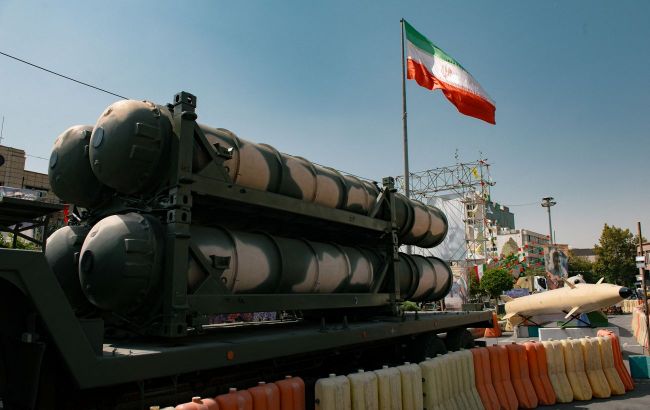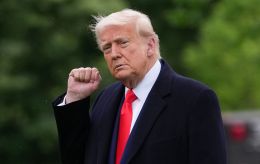Why Iran broke ceasefire with Israel right away: Ukrainian analyst explains
 Illustrative photo: Iran strikes Israel after the start of the ceasefire (Getty Images)
Illustrative photo: Iran strikes Israel after the start of the ceasefire (Getty Images)
The decision on a ceasefire between Iran and Israel may not have been approved by Iran's Supreme Leader Ali Khamenei. That is why it lasted only a few hours, stated political analyst Volodymyr Fesenko in a comment to the RBC-Ukraine YouTube channel.
Reason for the ceasefire breakdown
Fesenko pointed out that there is nothing surprising about the violation of the ceasefire between Israel and Iran. In his opinion, it is related to the specific nature of Iran's leadership.
"We understand that there was agreement on signing the ceasefire from the Israeli government's side... We know that Qatar acted as a mediator. But who negotiated on Iran's side? We do not know. We assume it was either representatives of the Ministry of Foreign Affairs or representatives of the President. However, the key question is this: any serious decision in Iran must be made and approved by the Supreme Leader Ayatollah Khamenei, and he is hiding," the political analyst said.
He reminded that the decision-making process in Iran is complicated because decisions must be coordinated with the Supreme Leader through his assistant. And that takes time. So far, it is unknown whether such a decision was approved by Khamenei. Diplomats may have agreed to the ceasefire without their leader's political consent.
At the same time, according to Fesenko, another scenario is possible — Khamenei allowed negotiating the ceasefire, but without other concessions. However, so far, it is unclear what exactly the parties agreed on besides the ceasefire.
Fesenko also suggested that the Islamic Revolutionary Guard Corps, which is not influenced by the decisions of Iran's Ministry of Foreign Affairs and President Masoud Pezeshkian, wants to continue the war.
"So most likely, in the near future, Iran will have to clarify whether they will still adhere to the ceasefire or continue the war," he believes.
Who is interested in the ceasefire
According to Fesenko, the United States, China, Russia, and parts of the Iranian leadership are still interested in a ceasefire between Israel and Iran.
"Because, in my view, there is an interest, at least on the part of some within the current regime, to preserve themselves, to preserve this regime. And this is only possible if the war stops. If the war continues, the situation could run out of control. Even more targets in Iran could be destroyed, and the Supreme Leadership could die. So it's unclear what will happen next. But this way, there is a chance to save themselves," he added.
At the same time, the political analyst explained that China does not want an escalation of the war because, in that case, the Strait of Hormuz would be blocked. This would hit the Chinese economy hard.
"China is the main buyer of Iranian oil. And the oil that comes from the Persian Gulf mostly goes to Asia, about 70%. That's India, China. So China is not interested in escalating the war," Fesenko said.
He also believes that Russian leader Vladimir Putin does not want the war between Iran and Israel to continue, because he is trying to maintain constructive relations with US President Donald Trump.
"For Putin, Trump is the top priority, and Iran comes second. That's why it's better for them to come to an agreement, that's what Trump wants. And for Putin, this preserves the prospect of further contacts and agreements with Trump," he clarified.
Israel's truce with Iran
Today, June 24, in the morning, US President Donald Trump announced that a truce between Iran and Israel had come into effect.
A few hours later, it became known that Iranian troops had launched missiles at Israel.

